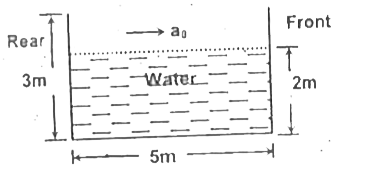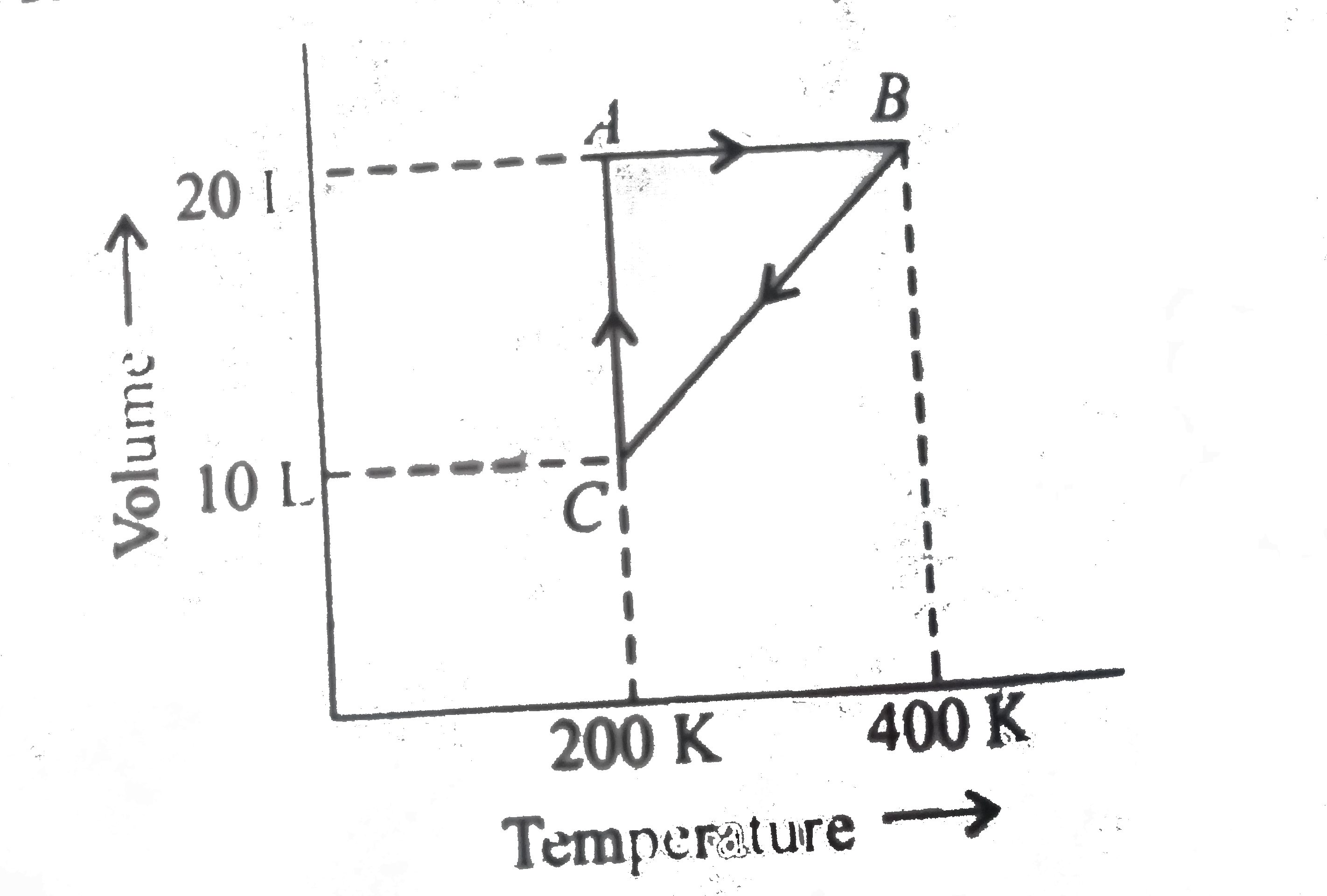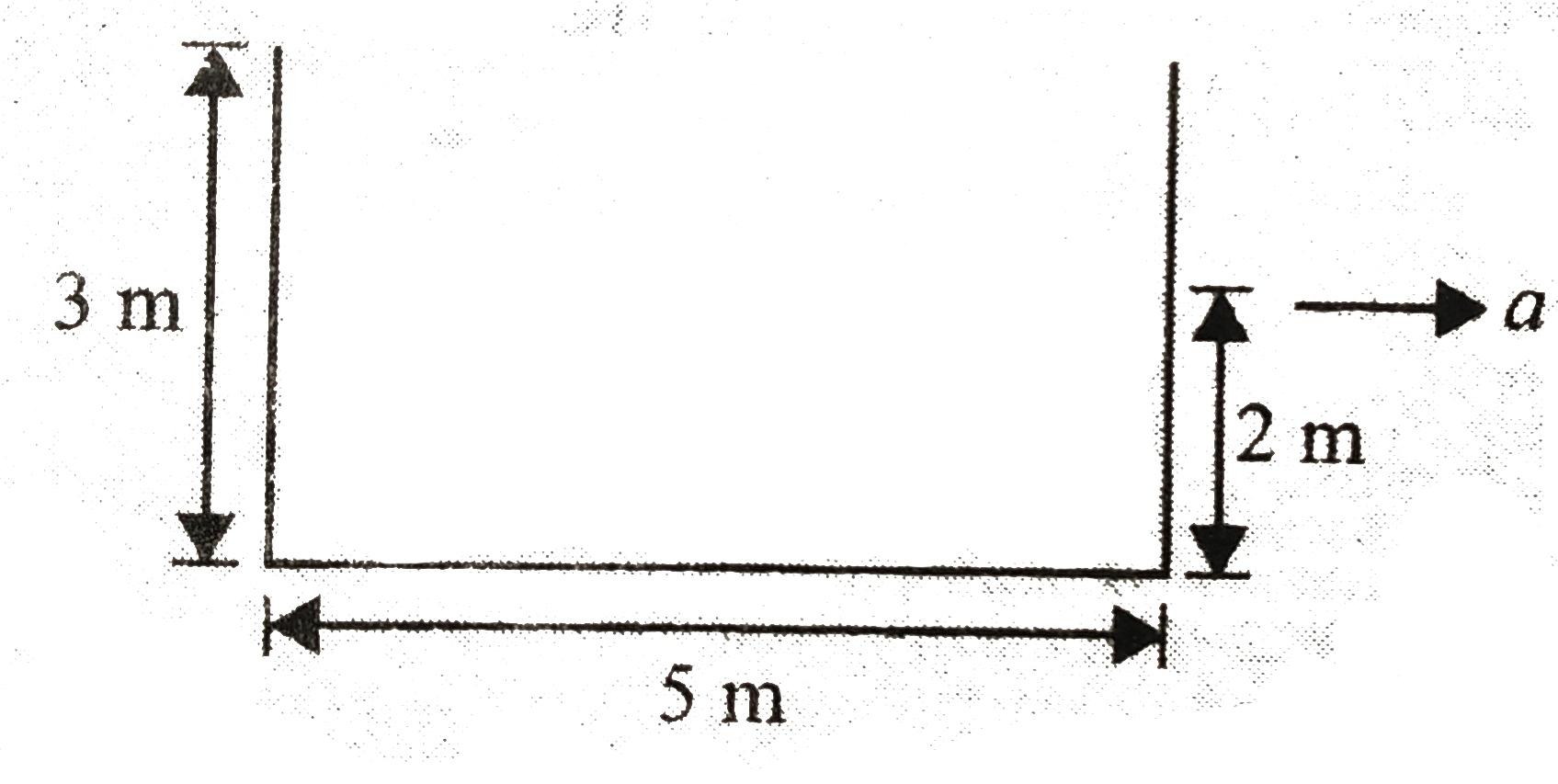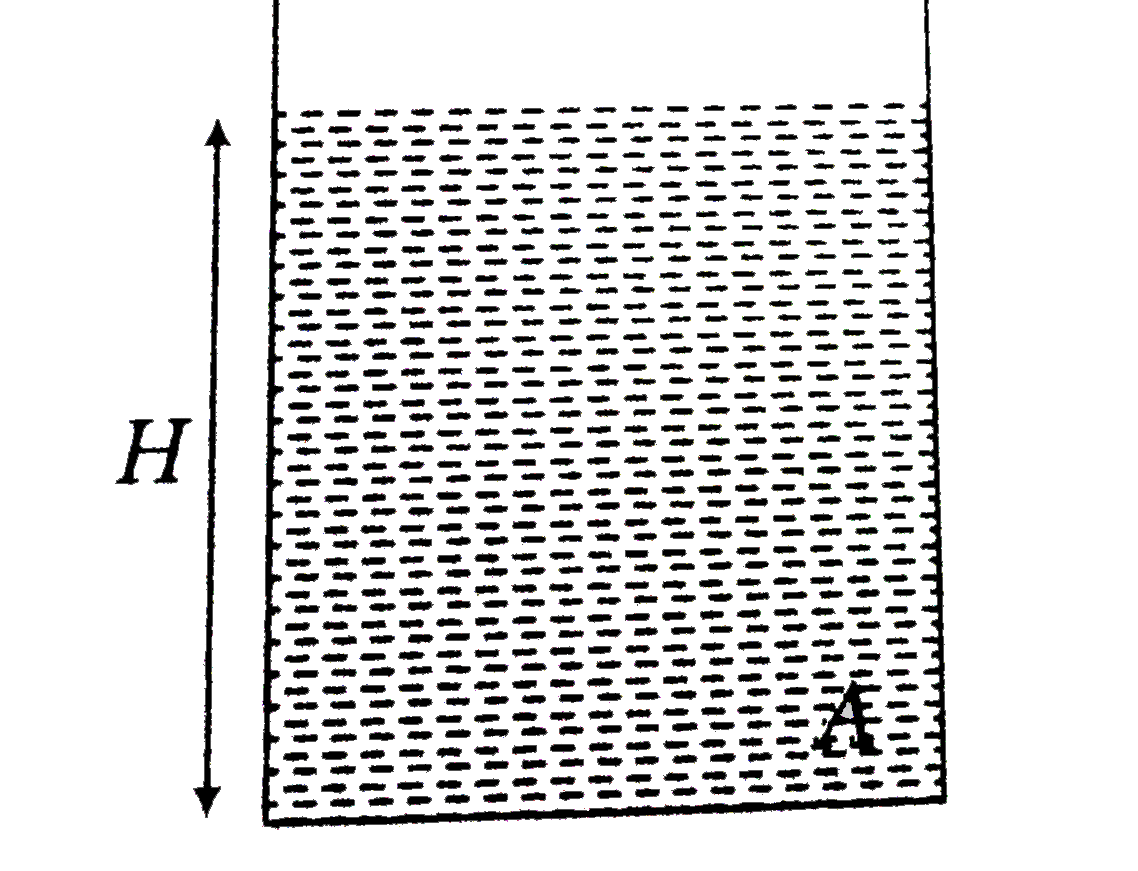_E01_226_Q01.png)
An open retangular tank 5m×4m×3m high containing water upto a height of 2m is accelerated horizontally along the longer side.
(i). Determine the maximum acceleration that can be given without spilling the water.
(ii). Calculate the percentage of water split over if this acceleration of increased by 20%
(iii). If initially the tank is closed at the top and its accelerated horizontally by 9m/s2 find the gauge pressure at the bottom of the front and rear walls of the tank.
4 m/s,10%,0,45kPa
a) ag=n2−n1L⇒a=g(n2−n1)L=10×15=2m/s
b) Gauge pressure at front is O and the gauge pressure at ear walls is =ρxa=1×9×5=45kpa
Similar Questions
An open rectangular tank 5m×4m×3m high containing water upto a height of 2m is accelerated horizontally along the longer side .
(a) Determine the maximum acceleration that can be given without spilling the water .

View Solution
The pressure at C is
View SolutionA container shown in Fig. is accelerated horizontally with acceleration a.
a. Find the minimum value of a at which liquid just starts spilling out.

View SolutionAn open rectangular tank 1.5 m wide 2m deep ad 2 m long is half filled with water. It is accelerated horizontally at 3.27m/s2 in the direction of its length determine the depth of water at each end of tank.
View SolutionA spherical tank of 1.2m radius is half filled with oil of relative density 0.8. If the tank is given a horizontal acceleration of 10m/s2, the maximum pressure on the tank is √2P pascal. Find the value of P.
View SolutionA water tank is 20 m deep . If the water barometer reads 10 m at the surface , then what is the pressure at the bottom of the tank in atmosphere ?
View SolutionA cylindrical tank contains water up to a height H. If the tank is accelerated upwards with acceleration a, the pressure at the A is p1. If the tank is accelerated downwards with acceleration a the pressure at A is p2. Then

View SolutionA rectangular water tank of base 11m×6m contains water upto a height of 5 m. If the water in the tank is transferred to a cylindrical tank of radius 3.5 m, find the height of the water level in the tank.
View SolutionA body moving with a constant acceleration travels distances 3 m and 8 m, respectively in 1 s and 2 s. Calculate:
(i)the initial velocity.
(ii)The acceleration of body.
View SolutionA body moving with a constant acceleration travels the distances 3 m and 8 m respectively in 1 s and 2 s. Calculate : (i) the initial velocity, and (ii) the acceleration of body.
View Solution
